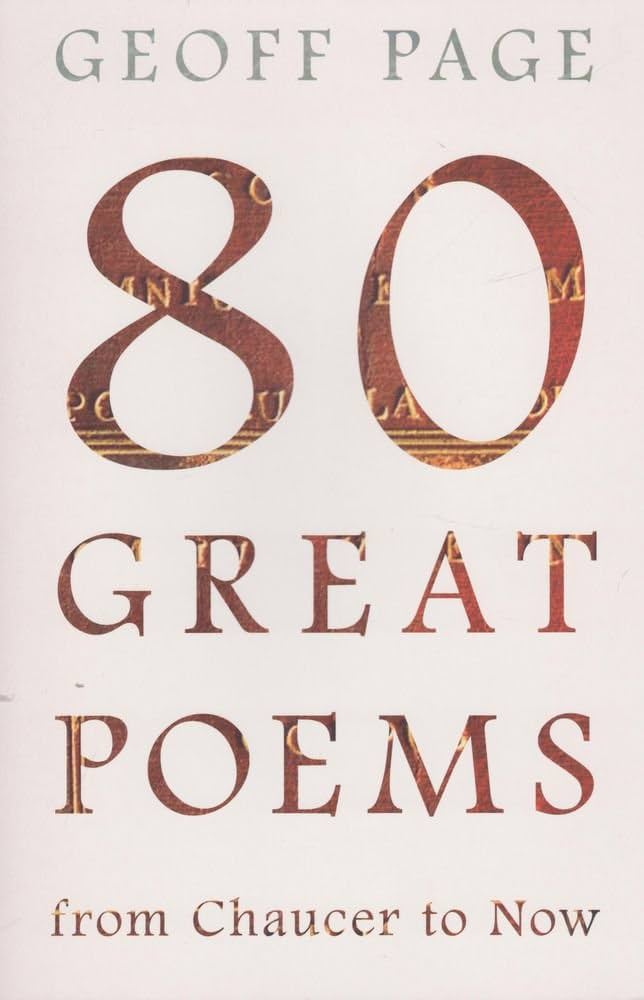Poetry
The Oxford Book of American Poetry by David Lehman
by Peter Rose •
80 Great Poems: From Chaucer to now edited by Geoff Page
by Chris Wallace-Crabbe •
Blessings and praise
to the dark entanglement of caught branches
I continue to see,
after years of crossing the causeway,
as a black swan
holding her place in the current, her head
held resolute and serene,
her cygnets the shadows that advance and recede
in the eddies she makes going nowhere.
... (read more)The body’s peasant workers – hands –
daily toil in the fields of light.
They never question our wishes.
They can fail, but not misunderstand.
They are our strangeness that we are blind to.
At night they lie like maimed spiders
or star fish swept to shore. They know
about love as much as mouths and eyes.
Throughout the day, they give the mouth ... (read more)
daily toil in the fields of light.
They never question our wishes.
They can fail, but not misunderstand.
They are our strangeness that we are blind to.
At night they lie like maimed spiders
or star fish swept to shore. They know
about love as much as mouths and eyes.
Throughout the day, they give the mouth ... (read more)
Sometimes Gladness: Collected Poems 1954-2005 by Bruce Dawe
by Nicholas Birns •
Sweeping the Light Back into the Mirror by Nathan Shepherdson
by Melissa Ashley •
David Campbell: Hardening of the light: selected poems edited by Philip Mead
by Vivian Smith •
UTS Writers’ Anthology: Making Tracks edited by Melissa Bruce et al.
by Rebecca Starford •











